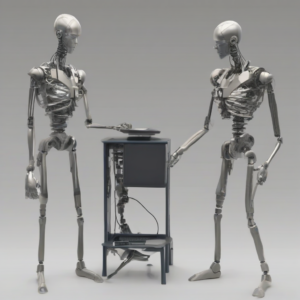AC Unit Service: Your Comprehensive Guide to Maintenance, Repair, and Replacement
Maintaining the efficiency and longevity of your air conditioning unit is crucial for both comfort and cost savings. This comprehensive guide explores all aspects of AC unit service, from preventative maintenance to emergency repairs and eventual replacement.
Understanding Your AC Unit
Before diving into service specifics, understanding your AC unit’s type and components is essential. Common types include:
- Central Air Conditioners: These systems are connected to ductwork, distributing cooled air throughout your home.
- Window Units: Smaller, self-contained units installed in windows.
- Portable Air Conditioners: Freestanding units with exhaust hoses.
- Ductless Mini-Splits: These systems consist of an indoor unit and an outdoor unit, connected by refrigerant lines but without ductwork.
Regardless of the type, most AC units share fundamental components:
- Compressor: The heart of the system, compressing refrigerant to a high pressure.
- Condenser Coil: Releases heat from the refrigerant to the outside air.
- Evaporator Coil: Absorbs heat from indoor air, cooling it.
- Refrigerant Lines: Transport refrigerant between components.
- Blower Fan: Circulates air over the evaporator coil and distributes cooled air.
- Thermostat: Controls the unit’s operation based on temperature settings.
Preventative Maintenance: The Key to Longevity
Regular preventative maintenance is the most effective way to extend the life of your AC unit and avoid costly repairs. This typically involves:
- Cleaning the Air Filter: A dirty filter restricts airflow, reducing efficiency and potentially damaging the unit. Change or clean filters every 1-3 months, or more frequently in dusty environments.
- Inspecting and Cleaning the Condenser Coil: Debris buildup on the outdoor unit restricts heat dissipation, lowering efficiency. Clean the coils with a coil cleaning brush or solution.
- Checking Refrigerant Levels: Low refrigerant levels reduce cooling capacity. A qualified technician should check and recharge refrigerant as needed. Note: Do not attempt this yourself, as improper handling can be dangerous.
- Lubricating Moving Parts: Regular lubrication of motors and other moving parts reduces wear and tear.
- Inspecting Electrical Connections: Loose or corroded connections can lead to malfunctions.
- Checking Drainage System: Ensure that the condensate drain is clear and functioning properly to prevent water damage.
Ideally, preventative maintenance should be performed annually, preferably before the peak cooling season.
Troubleshooting Common AC Problems
Even with regular maintenance, AC units can experience problems. Here are some common issues and potential solutions:
- Unit Not Turning On: Check the circuit breaker, thermostat settings, and power supply.
- Weak Cooling: Inspect the air filter, condenser coils, and refrigerant levels. Consider professional service if the problem persists.
- Unusual Noises: Rattling, grinding, or squealing sounds can indicate worn bearings, loose parts, or other mechanical problems. Contact a professional for diagnosis and repair.
- Leaking Water: This could be due to a clogged condensate drain, frozen evaporator coil, or refrigerant leak. Professional assistance is usually necessary.
- Frozen Evaporator Coil: This often results from restricted airflow due to a dirty filter or insufficient refrigerant. Again, professional service is recommended.
- Warm Air Blowing: Check the thermostat settings, power supply, and refrigerant levels. Consider professional service.
When to Call a Professional
While some minor issues can be addressed with simple troubleshooting, many problems require the expertise of a qualified HVAC technician. Call a professional if:
- You’re uncomfortable performing maintenance or repairs yourself.
- The problem persists after attempting basic troubleshooting.
- You suspect a refrigerant leak.
- You hear unusual noises or experience unusual behavior from your unit.
- The unit is not cooling effectively, despite your efforts.
- You notice any signs of electrical problems.
Choosing an AC Unit Service Provider
Selecting a reliable AC unit service provider is crucial. Consider the following factors:
- Licensing and Insurance: Ensure the company and technicians are properly licensed and insured.
- Experience and Expertise: Look for companies with extensive experience in servicing various AC unit types.
- Customer Reviews and Testimonials: Check online reviews to gauge customer satisfaction.
- Service Guarantees: Inquire about warranties and guarantees on repairs and services.
- Pricing and Transparency: Obtain clear and upfront pricing before work commences.
- Emergency Service Availability: Confirm their availability for emergency repairs during off-hours.
AC Unit Repair: Addressing Specific Issues
Depending on the problem, AC unit repairs can range from simple fixes to complex overhauls. Some common repairs include:
- Compressor Repair or Replacement: A faulty compressor is a major problem and often necessitates professional intervention.
- Condenser Coil Repair or Replacement: Damaged or corroded coils can significantly impact efficiency and require professional repair or replacement.
- Evaporator Coil Repair or Replacement: Similar to condenser coils, damaged evaporator coils need professional attention.
- Refrigerant Leak Repair: Locating and repairing refrigerant leaks requires specialized equipment and expertise.
- Motor Replacement: Faulty blower motors or compressor motors may require replacement.
- Capacitor Replacement: Capacitors store energy and are essential for proper operation. A faulty capacitor may require replacement.
- Thermostat Replacement: A malfunctioning thermostat may prevent the unit from operating correctly.
AC Unit Replacement: When to Consider a New Unit
While repairs can extend the life of your AC unit, there comes a point when replacement is more cost-effective. Consider replacing your unit if:
- Repair Costs Exceed Replacement Costs: Frequent and costly repairs indicate it might be time for a new unit.
- Unit is Inefficient: An old, inefficient unit can significantly increase energy bills.
- Unit is Noisy or Unreliable: Constant problems or excessive noise can disrupt comfort.
- Unit is Outdated: Older units may lack modern features like advanced energy efficiency and smart technology.
- Environmental Concerns: Older units may use refrigerants that are harmful to the environment.
Choosing a New AC Unit
Selecting a new AC unit involves several factors:
- SEER Rating: This rating measures energy efficiency. Higher SEER ratings indicate greater efficiency and lower energy costs.
- Cooling Capacity (BTUs): The cooling capacity should match the size of the space being cooled.
- Type of Unit: Consider factors like space constraints, budget, and desired features when choosing a unit type.
- Smart Features: Some units offer smart features like Wi-Fi connectivity and programmable thermostats.
- Warranty and Guarantees: Check the warranty offered by the manufacturer and installer.
- Professional Installation: Ensure the unit is professionally installed to maximize efficiency and safety.
Maintaining Your New AC Unit
Even new AC units require regular maintenance to ensure optimal performance and longevity. Follow the manufacturer’s recommendations for filter changes and preventative maintenance. Continuing to practice the preventative maintenance steps outlined earlier will significantly increase the life of your new unit.





